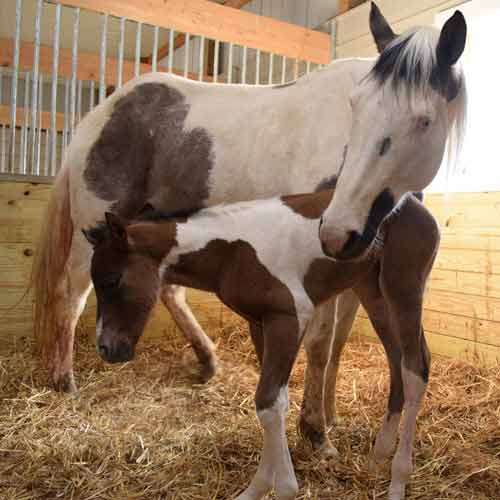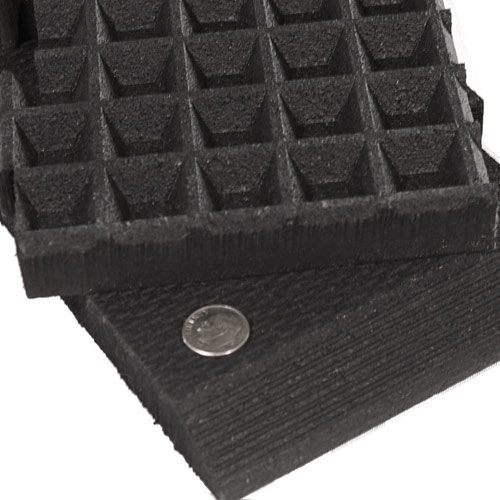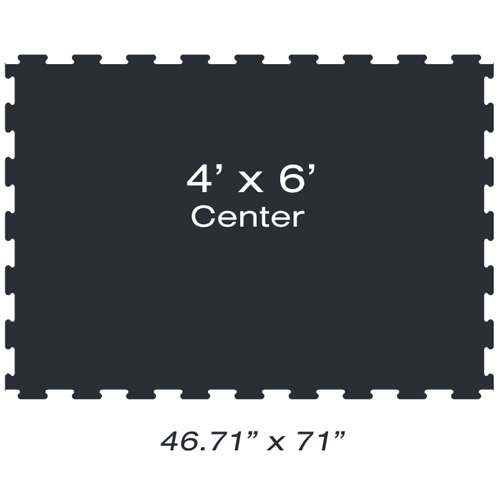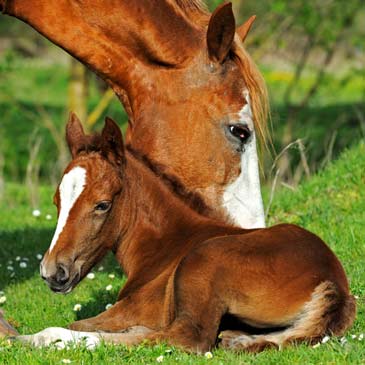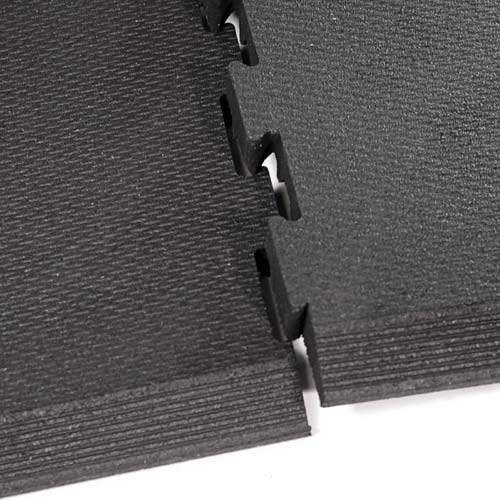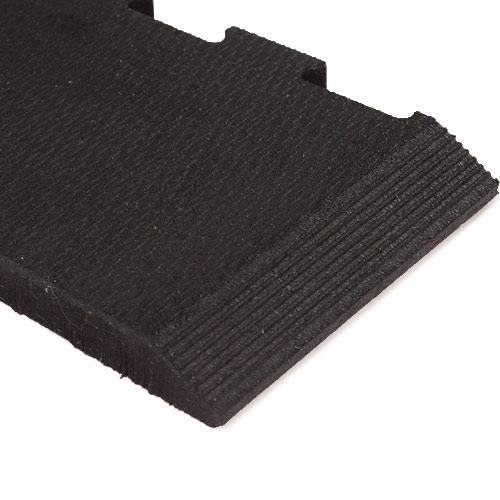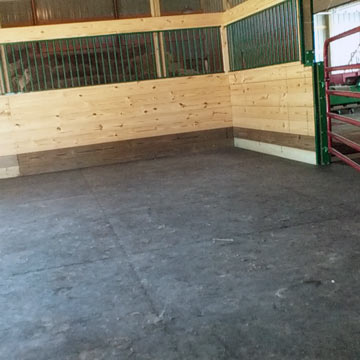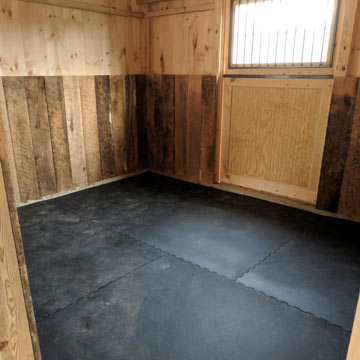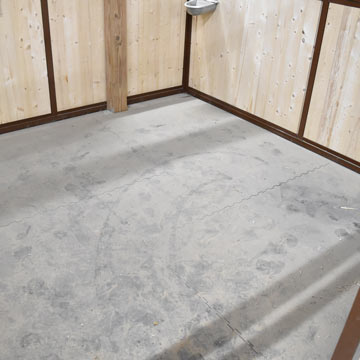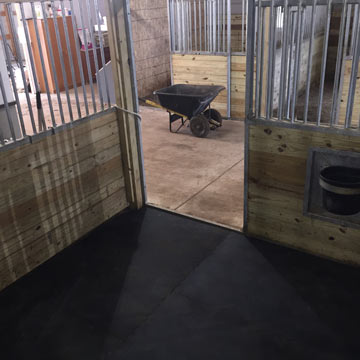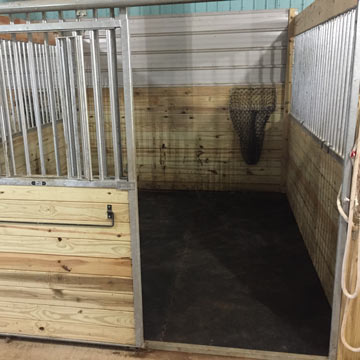What Makes Foaling Stall Mats Unique For Foaling Barns?
Related Product: Horse Stall Mats Kit Cobblestone 3/4 Inch x 10x10 Ft.
Designing The Safe Foaling Stall
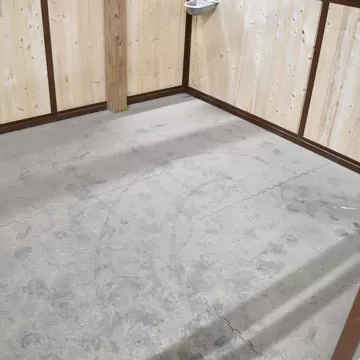
Foals usually spend much of their initial lives in a foaling stall, so you'll want to put some serious thought into how you design your foaling stall. Factors such as determining an appropriate foaling stall size and selecting an appropriate bedding may appear to be minor choices, but they can have major implications on your foal's safety and health.
The below tips can help you to design every aspect of a safe foaling stall.
- Foaling stall size Foaling stalls should measure at least 12x12 feet, though larger is better. The larger the stall, the less chance there is of the mare stepping on the foal. You may need to adjust the foaling stall size if you're working with larger horses. An ideal size is 20x20 or 12x24 feet. Foaling stalls should be the largest stalls in the barn.
- Subfloor design - The subfloor is an important factor in any foaling stall. Take the time to make sure that your subfloor is level. Fill in any holes so that you're starting with an even, smooth foundation.
- Stall mats - Always use appropriate mats designed specifically for foaling. Be sure that the mats cover the entire floor of the foaling stall.
- Stall door - Look for a stall door with a solid design. You'll want to avoid slats or holes where a foal could potentially catch a leg. If you opt for a mesh door, make sure that the mesh is strong, in good condition, and that the holes are small enough to prevent a foal's hoof from getting stuck.
- Overall safety - Nails, sharp edges, and other protrusions can be dangerous for foals. Carefully inspect your stall, including feed buckets and waterers, to make sure there are no sharp edges or other dangerous items.
- Lighting - You'll need a source of lighting, especially when monitoring the mare during the foal watch. While you're working with the electrical system in your barn, take some time to make sure that all outlets and cords are well out of the foal's reach.
- Ventilation - You'll want a source of ventilation for the stall, such as a window. However, make sure that there aren't any drafts, especially if you're expecting a foal during the winter months.
- Disinfecting - Remove all bedding from the stall and disinfect the walls, buckets, flooring, and feeders. Allow everything to dry thoroughly before moving the mare into the stall.
- Bedding - Generously bed your foaling stall with a safe and appropriate bedding. Straw is a popular option, both in terms of affordability and safety.
Setting up a foaling stall correctly takes time, but it's an important part of breeding and raising a foal.
Why Foaling Stall Mats Matter
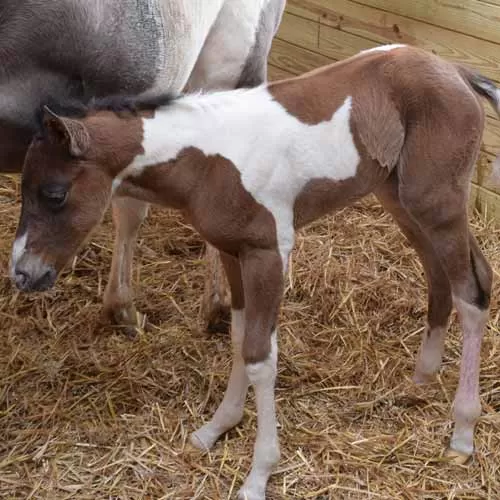
Greatmats offers foaling stall mats that are designed to help keep foals safe. These mats have a lightly textured surface which allows the mare to get traction during foaling, and which helps to give the foal grip as he learns to stand and walk. The mats are made from 100% recycled rubber, so they're both durable and strong, and won't be damaged by moisture or urine.
Our foaling stall mats feature interlocking edges, so they can be fit together to create a smooth, unified stall surface. The waterjet cut interlocking system makes for the tightest, most secure fit possible, so the mats won't pull apart and you won't have to worry about bedding working its way down between the mats. Installed properly, there won't be any uneven areas or curling edges to push an already unstable foal off of his feet.
But there's one additional feature of foaling stalls that makes all the difference when it comes to a foal's safety and comfort.
What to Look for In Foaling Stall Flooring
Are you planning to outfit your breeding facility with new stall mats for foaling horses, or do you just need mats for one foaling stall in your barn? Either way, you'll want to choose the right stall mats for your needs.When looking for stall mats for foaling stalls, the following factors are important:
- Shock absorption and cushion - Look for a mat that creates a forgiving surface. Our waffle bottom foaling mats are designed to do just this.
- Traction - While you'll be putting plenty of bedding on top of the mats, look for a mat that has a surface designed to provide traction to the mare and foal to further prevent slips and falls.
- Durability - While the mat needs to be forgiving enough for a foal, it also needs to be durable enough to withstand the weight of the mare.
- Interlocking design - Straight edge stall mats can curl up and create an uneven surface. Always opt for interlocking mats when you're working with a foaling stall.
Greatmats offers quality foaling stall mats designed with all of these features and more. Backed by a 12-year warranty, these mats have a waffle bottom design that creates a safe and forgiving surface for both mare and stall. The mats also interlock to create a smooth, cohesive surface.
What's better, is that we even offer stall mats for foaling horses in pre-sized kits or custom sizes. Each kit contains the mats that you need to mat a stall of one of the following sizes:
- 12x12 feet
- 12x18 feet
- 12x24 feet
- 14x16 feet
- 14x20 feet
- 16x16 feet
Ordering Your Foaling Stall Mats
Foaling season is right around the corner, so don't delay in ordering your stall mats for foaling horses. Mats ship via freight delivery, and will arrive shrink wrapped on pallets.Be sure to contact our excellent customer service team if you have questions about the mats, are unsure about which product is right for your stable, or if you'd like a shipping quote. We would be happy to help you find the right product so that your foaling stalls are ready to go when you need them.
We wish you all the best with the upcoming foaling season! Don't forget to send us photos of your farm's new additions!
